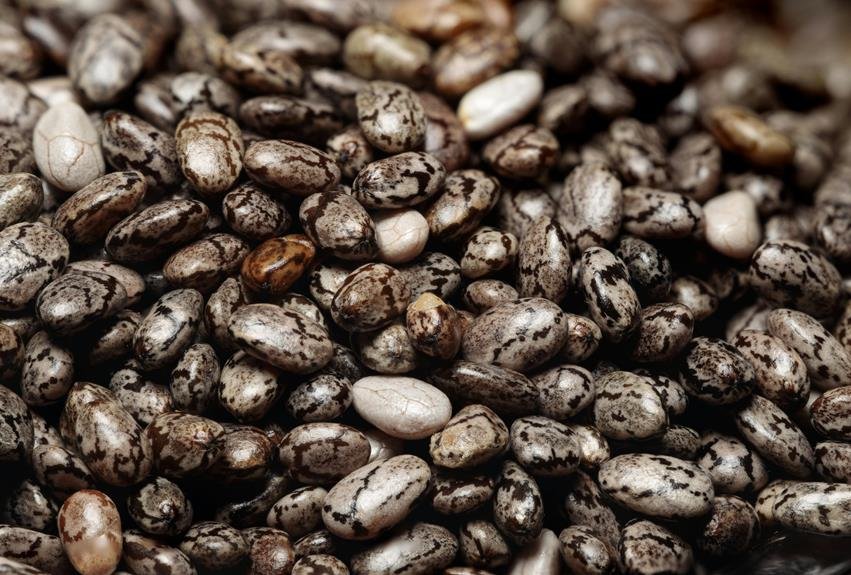
When it comes to maintaining healthy bones, protein is a key player that shouldn't be overlooked. From aiding in bone formation to supporting mineral absorption, protein's role in bone health is significant. But have you ever wondered about the specific types of protein or the recommended intake levels that can truly make a difference in your bone strength and resilience? Let's explore how choosing the right protein sources can help you build a solid foundation for your skeletal well-being.
Importance of Protein for Bone Health
To maintain strong and healthy bones, your body actively utilizes protein in various processes essential for bone health. Protein plays a crucial role in bone formation, repair, and maintenance. When you consume protein-rich foods, your body breaks down the protein into amino acids, which are the building blocks required for bone tissue growth and repair. These amino acids are then used to create collagen, a key component of bones that provides structure and strength.
In addition to collagen production, protein also aids in the absorption and retention of essential minerals like calcium, phosphorus, and magnesium, which are vital for bone density and strength. Without an adequate intake of protein, your bones may become weak and more prone to fractures.
Furthermore, protein helps regulate bone metabolism by influencing the activity of cells responsible for bone remodeling. This process ensures that old or damaged bone tissue is replaced with new, healthy bone tissue, maintaining the structural integrity of your bones. Therefore, incorporating sufficient protein into your diet is crucial for supporting optimal bone health.
Protein's Impact on Bone Density
Protein actively contributes to bone density by supporting mineral absorption and collagen production essential for bone strength. Adequate protein intake plays a crucial role in maintaining optimal bone health. When you consume protein-rich foods, such as lean meats, poultry, fish, dairy, legumes, and nuts, your body can effectively absorb calcium, phosphorus, and other essential minerals necessary for building and maintaining strong bones. Collagen, a protein found in bone tissue, provides the framework for bone structure and helps prevent fractures. By including protein in your diet, you promote the formation of new bone tissue and support bone density.
Research indicates that a lack of protein can lead to decreased bone mass and increased fracture risk. Ensuring you meet your daily protein requirements can help prevent bone loss and maintain bone density as you age. Remember to incorporate a variety of protein sources into your meals to support overall bone health. By prioritizing protein intake, you actively contribute to the strength and density of your bones.
Recommended Protein Intake for Bones
Aiming for the right amount of protein in your daily diet is key to supporting bone health and strength. The recommended protein intake for bones varies depending on factors such as age, gender, and activity level. In general, it's advised that adults consume around 0.8 grams of protein per kilogram of body weight. However, for individuals looking to improve bone health or who are more physically active, slightly higher protein intake may be beneficial.
Research suggests that consuming protein consistently throughout the day, rather than in just one or two large meals, can better support bone health. This steady intake helps with the body's continuous process of breaking down and rebuilding bone tissue. Including protein-rich foods like lean meats, poultry, fish, eggs, dairy products, legumes, nuts, and seeds in your meals and snacks can help you meet your daily protein needs for optimal bone health.
Best Protein Sources for Bone Health
For optimal bone health, incorporating a variety of protein-rich foods into your daily meals is essential. When it comes to the best protein sources for bone health, lean meats such as chicken and turkey are excellent choices. These meats are rich in high-quality protein, which provides the building blocks necessary for bone formation and maintenance.
Additionally, fatty fish like salmon and sardines are great options due to their high levels of omega-3 fatty acids and vitamin D, both of which are crucial for bone health.
Plant-based protein sources like beans, lentils, and tofu are also beneficial for bones. They not only provide protein but also contain nutrients like calcium, magnesium, and potassium that support bone strength.
Incorporating dairy products like yogurt and cheese into your diet can further enhance your bone health, as they're rich in both protein and calcium.




